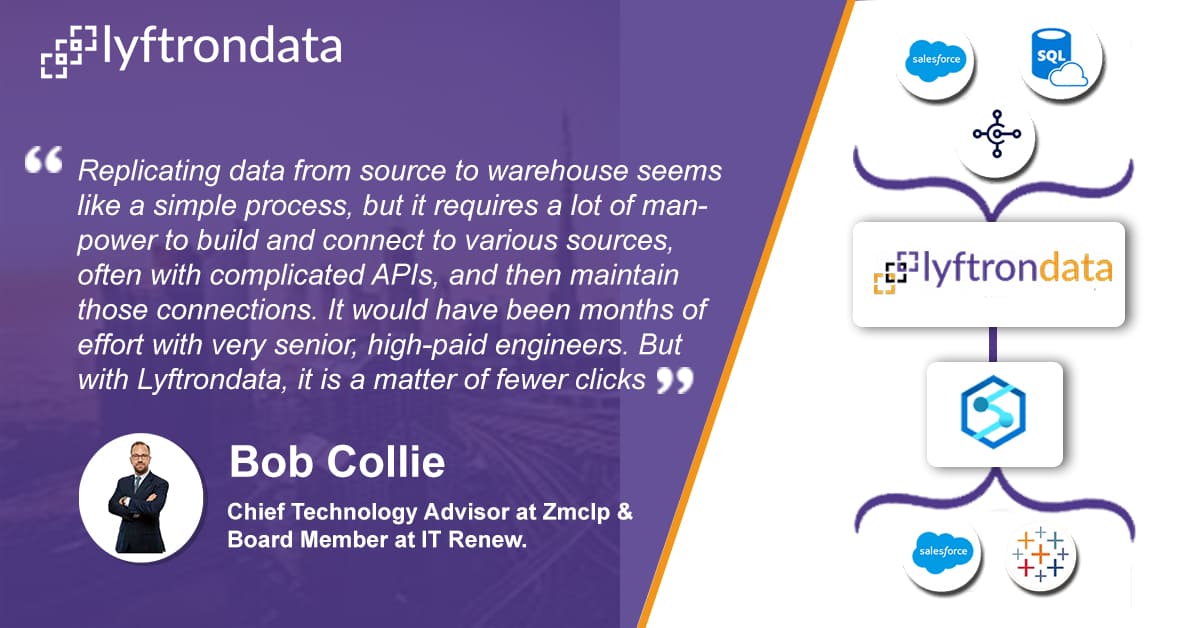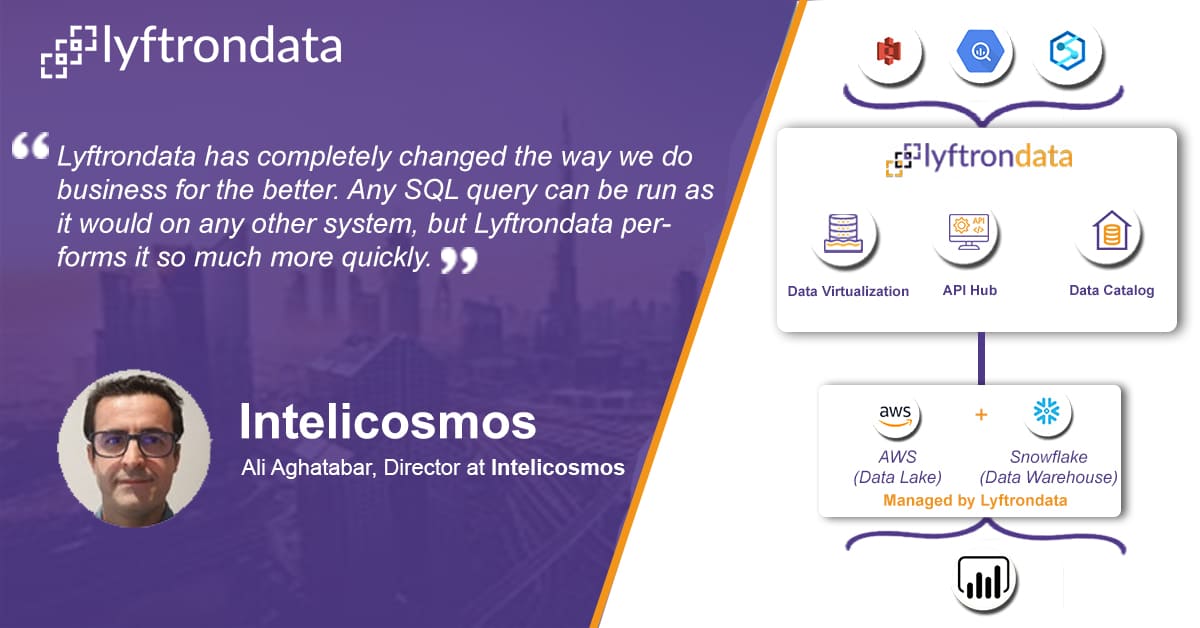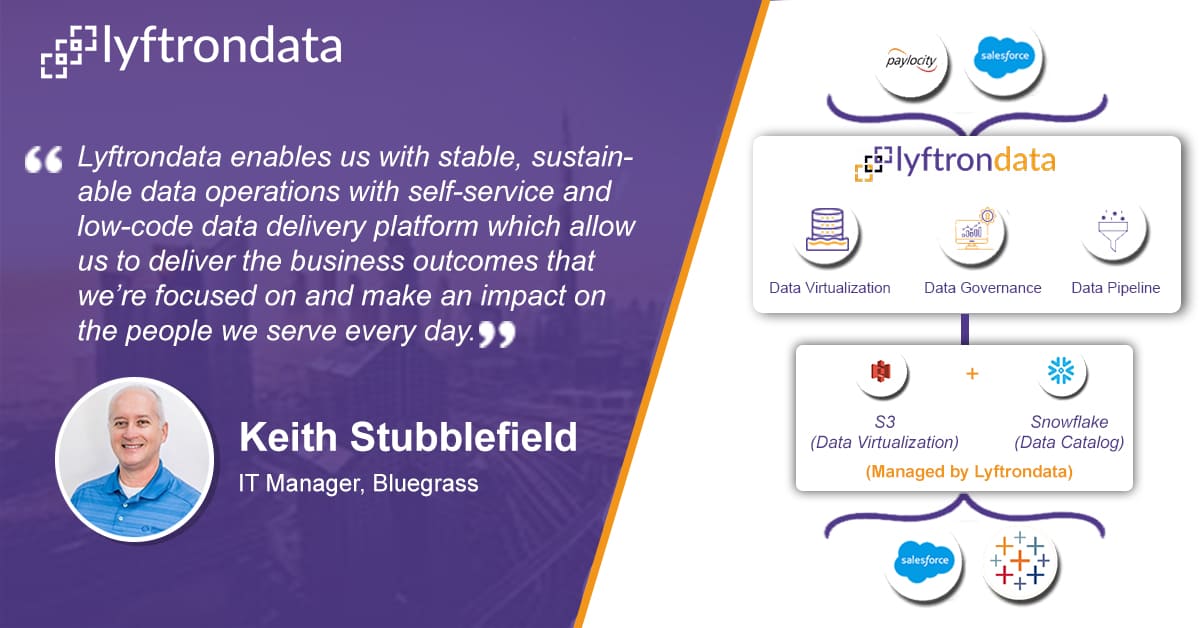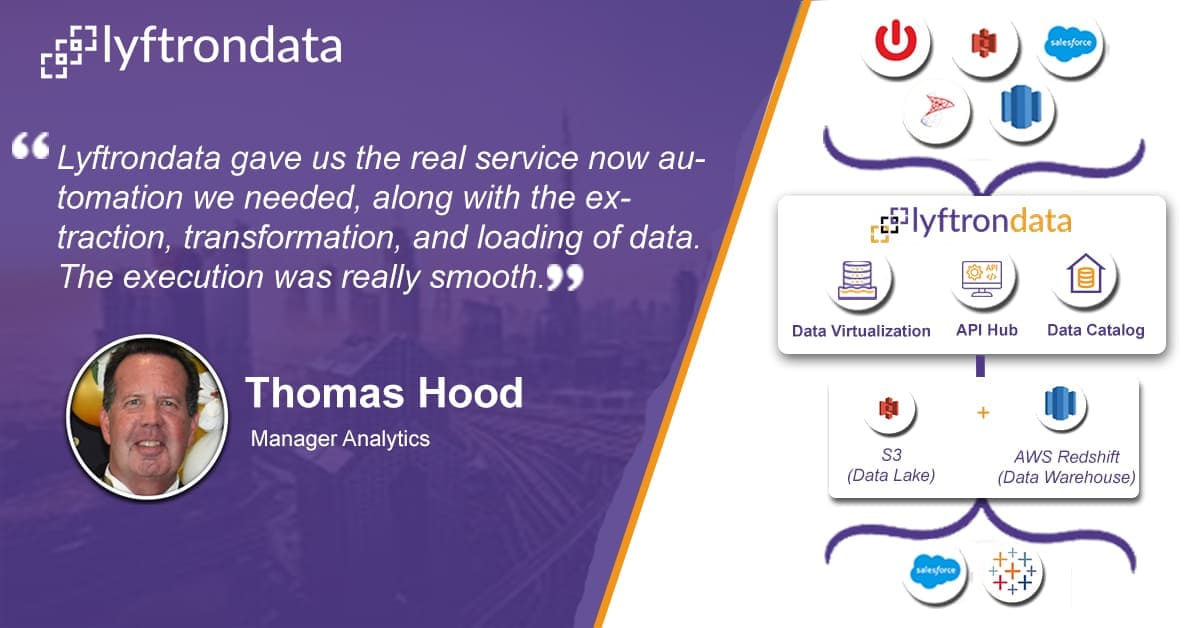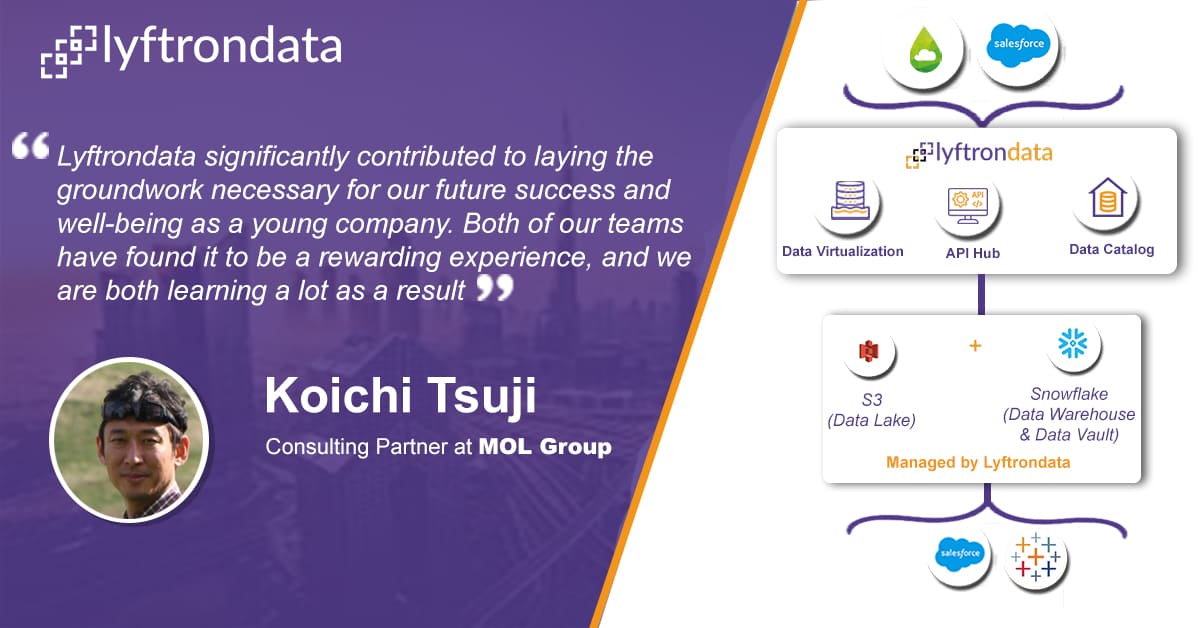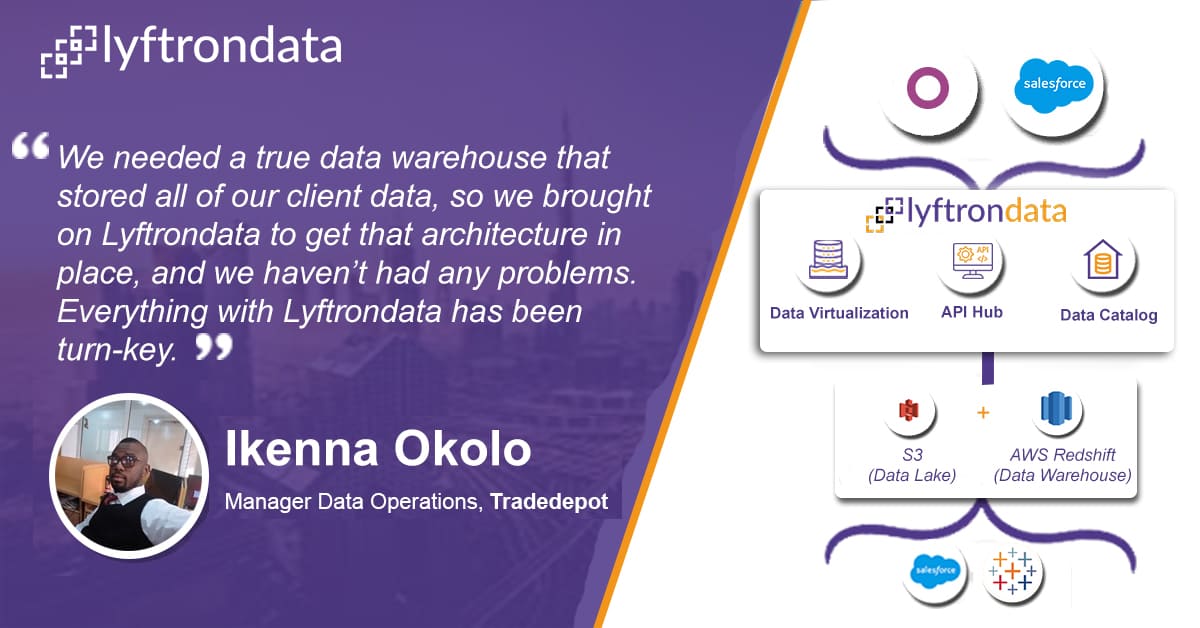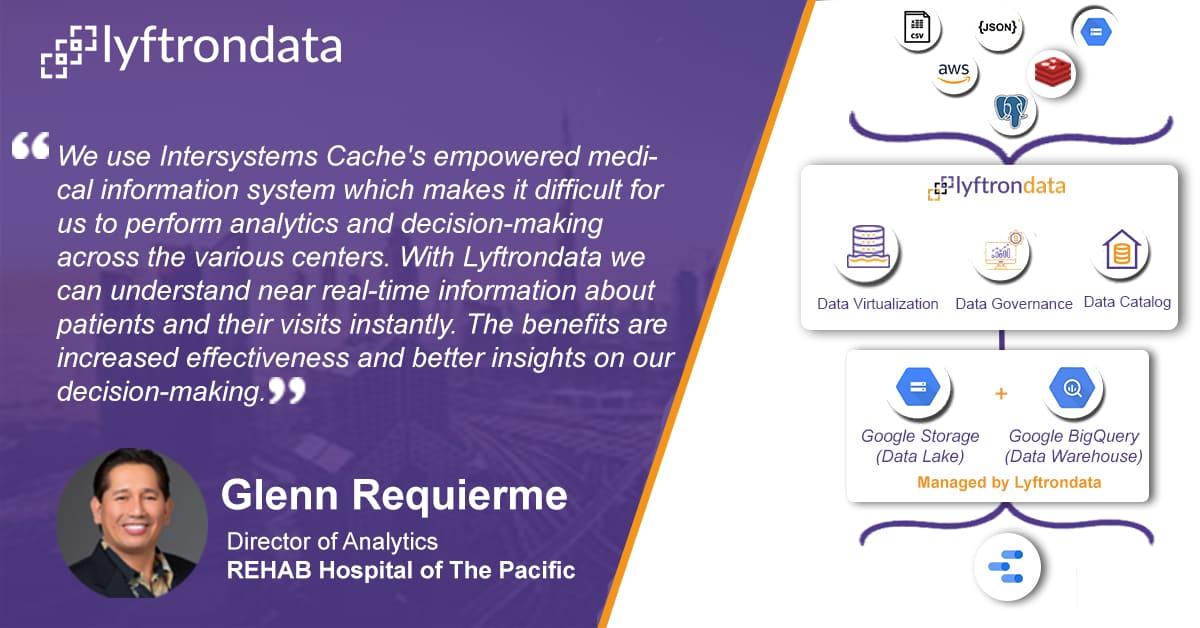200X Acceleration at
1/10th of the cost
Zero
maintenance
No credit card
required
Zero coding
infrastructure
Multi-level
security
Simplify IBM CloudSQL integration in
4 simple steps
Create connections
between IBM CloudSQL and targets.
Prepare pipeline
between IBM CloudSQL and targets by selecting tables in bulk.
Create a workflow
and schedule it to kickstart the migration.
Share your data
with third-party platforms over API Hub

Why choose Lyftrondata for IBM CloudSQL Integration?
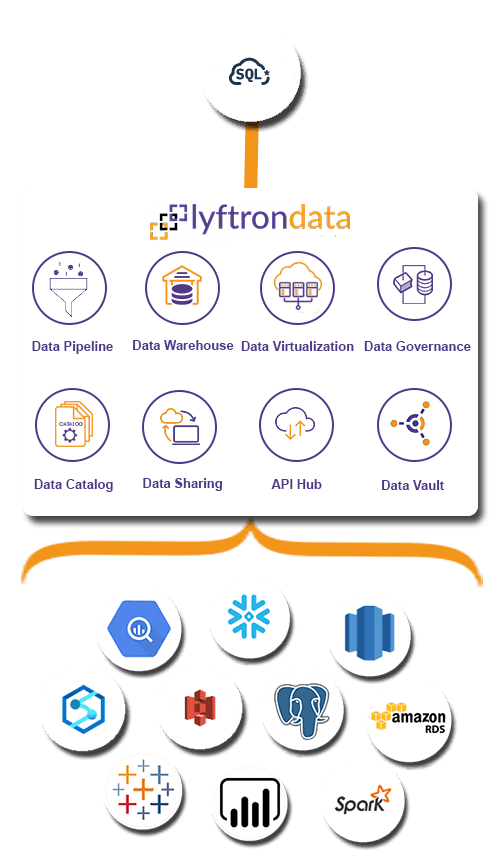

Simplicity
Build your IBM CloudSQL pipeline and experience unparalleled data performance with zero training.

Robust Security
Load your IBM CloudSQL data to targets with end-to-end encryption and security.

Accelerated ROI
Rely on the cost-effective environment to ensure your drive maximum ROI.

Customer's Metrics
Track the engagement of your customers across different channels like email, website, chat, and more.

Improved Productivity
Measure the performance of your team and highlight areas of improvement.

360-degree Customer View
Join different data touch points and deliver personalized customer experience.
Hassle-free IBM CloudSQL integration to the platforms of your choice
Migrate your IBM CloudSQL data to the leading cloud data warehouses, BI tools, databases or Machine Learning platforms without writing any code.
Hear how Lyftrondata helped accelerate the data journey of our customers
FAQs
What is IBM CloudSQL?
IBM CloudSQL Migration creates connected products for your small business clients by quickly integrating with the accounting, banking, eCommerce, point of sale, and payment software they use. It supports designers as they work to solve the connectivity issue with the next generation of products for small businesses.
What are the features of IBM CloudSQL?
Seamless SaaS connection: You can Seamlessly connect SaaS to your software to your customer's financial data using IBM CloudSQL Integration.
Payment automation: Payments Deliver automated reconciliation to your business customers with the IBM CloudSQL connectors tool.
Expense management: IBM CloudSQL ETL offers expense management integration to your business customers' transactional data with their accounting platform.
B2B payment synchronization: IBM CloudSQL Drivers platform enables seamless B2B payments Synchronizing your customers' payables and receivables data.
What are the shortcomings of IBM CloudSQL?
Hectic onboarding: The onboarding experience could be refined in IBM CloudSQL Integration.
Quaint database: Out-of-date data of IBM CloudSQL Connectors.
Several errors and glitches: Evident client-side error, 401,
Unauthorized: The supplied IBM CloudSQL API key is incorrect. 402
Stringent Repayments: Non-digital and manual applications and inflexible repayments with IBM CloudSQL ETL.
Make smarter decisions and grow your sales with Lyftrondata IBM CloudSQL integration





